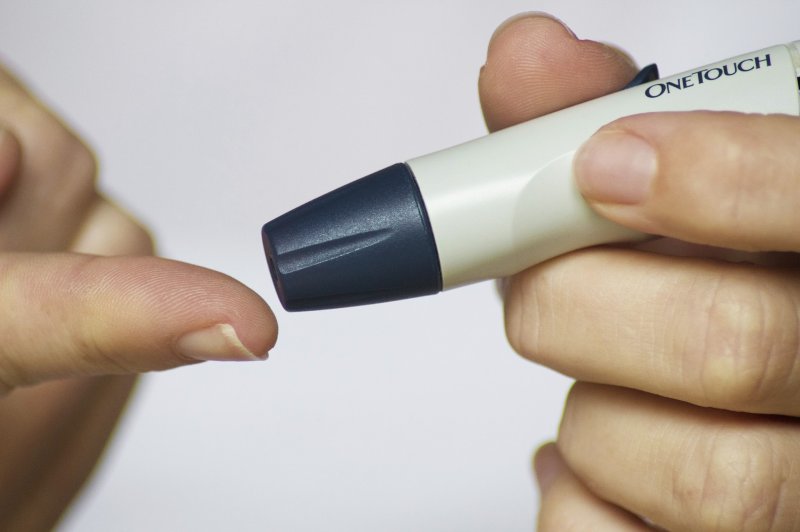Researchers think gene therapy could help some type 2 diabetes patients maintain a healthy weight and decrease the severity of their diabetes. Photo by Tesa Photography/Pixabay
July 9 (UPI) -- In one administration of gene therapy, researchers were able to cause weight loss in mice, as well as decrease insulin resistance, both of which are involved in the development of type 2 diabetes.
A research team at the Autonomous University of Barcelona administered an adeno-associated viral vector carrying the Fibroblast Growth Factor 21 gene. In this method, which was described in a study published Monday in EMBO Molecular Medicine, researchers manipulated genes in the the liver, fat tissue and skeletal muscle
The genetic manipulation caused production of the FGF21 protein, which is normally secreted naturally by several organs in the maintenance of correct energy metabolism for tissues.
"This is the first time that long term reversion of obesity and insulin resistance have been achieved upon a one-time administration of a gene therapy, in an animal model that resembles obesity and type 2 diabetes in humans," Veronica Jimenez, a researcher in the Barcelona university, said in a press release. "The results demonstrate that it is a safe and effective therapy."
They also found the gene therapy protected against tumor formation in the liver in response to a hypercaloric diet over a prolonged time.
The researchers tested the therapy in two mouse models of obesity, induced by diet or genetic mutations. The mice lost weight and increased insulin sensitivity as well as reduced fat accumulation and inflammation in fatty tissue. In addition, fat content, inflammation and fibrosis of the liver were revered.
When administered to healthy mice, the gene therapy promoted healthy aging and prevented age-associated weight gain and insulin resistance.
Genetic manipulation was successful in liver, adipose tissue or skeletal muscle to produce the FGF21 protein.
"This gives a great flexibility to the therapy, since it allows to select each time the most appropriate tissue, and in case some complication prevents manipulating any of the tissues, it can be applied to any of the others," study director Dr. Fatima Bosch said. "When a tissue produces FGF21 protein and secretes it into the bloodstream, it will be distributed throughout the body."
The gene therapy vectors induce the mice to produce the protein for many years after a single administration and without any adverse effects.
The pharmaceutical industry has developed drugs that mimic FGF21 but they require periodic administration to mediate clinical benefits. The researchers next want to test the therapy in large animals before clinical trials with humans.
AAV-mediated gene therapy has been approved for the treatment of several diseases in the United States and Europe.















